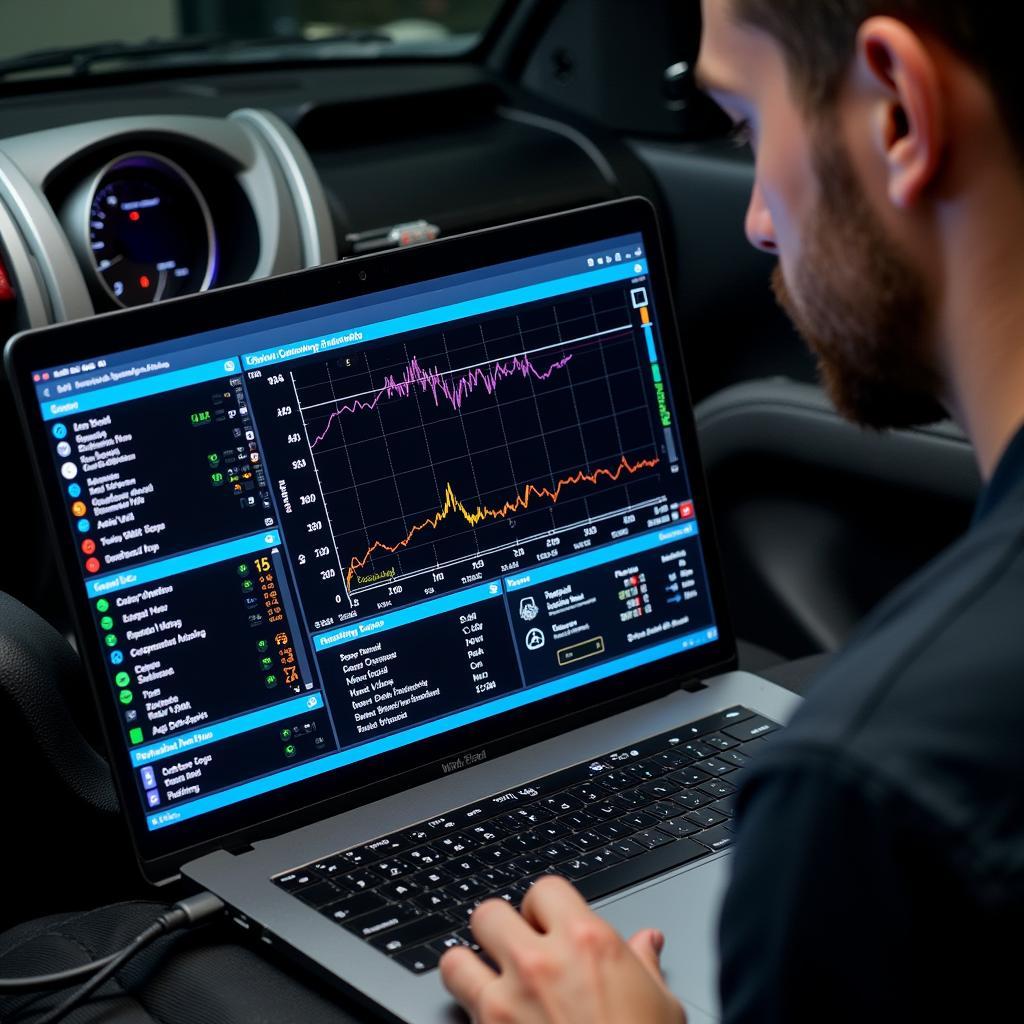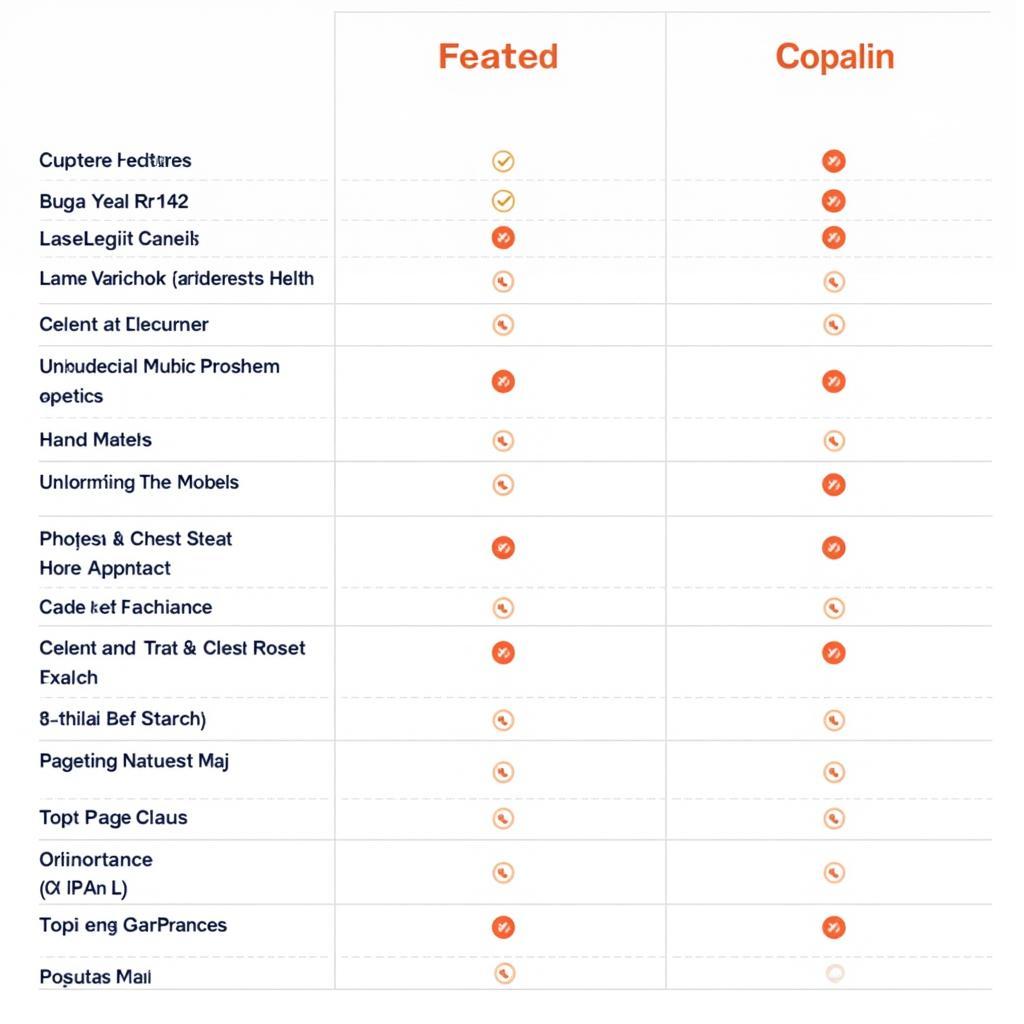When it comes to modern vehicle repair, having a deep understanding of industry-standard scanning tools is no longer optional – it’s essential. Whether you’re a garage owner looking to expand your team or a technician aiming to climb the career ladder, the phrase “industry application scanning tool experience” is likely to come up frequently. But what does this really mean, and how can you accurately evaluate a candidate’s proficiency in this crucial area?
Deciphering the Requirements: Beyond the Buzzwords
“Industry application scanning tool experience” might seem self-explanatory, but it encompasses a broad spectrum of skills and knowledge. It’s not just about knowing how to plug in a scanner and read codes; it’s about understanding the intricate relationship between software, vehicle systems, and diagnostic procedures. This includes:
- Proficiency with Diverse Scanning Tools: From basic OBD-II scanners to advanced OEM-level diagnostic suites, a skilled technician should be comfortable navigating various platforms and interpreting the data they provide.
- In-Depth System Knowledge: Modern vehicles are complex networks of interconnected systems. Diagnosing issues requires a solid understanding of how these systems interact and how software tools can pinpoint the root cause of a problem.
- Analytical and Problem-Solving Abilities: A scan tool is only as good as the person using it. Analyzing fault codes, live data streams, and other diagnostic information to formulate effective repair strategies is key.
- Staying Current with Technology: The automotive landscape is constantly evolving, with new technologies and diagnostic protocols emerging regularly. A commitment to continuous learning and staying updated is crucial in this fast-paced field.
Evaluating Expertise: Beyond the Resume
While a resume can provide an overview of a candidate’s experience, it’s essential to go beyond listed certifications and job titles to assess their true capabilities. Here’s how:
1. Targeted Interview Questions
- “Describe your experience with different types of automotive scanning tools, including both OEM and aftermarket options.” This allows you to gauge their familiarity with a range of tools and their ability to articulate their knowledge.
- “Walk me through a recent diagnostic challenge you faced and how you utilized a scanning tool to identify and resolve the issue.” This prompts the candidate to showcase their analytical skills and real-world experience.
- “Which automotive systems are you most comfortable diagnosing using scanning tools?” This helps you understand their areas of expertise and potential limitations.
- “How do you stay updated on the latest advancements in automotive scanning technology and diagnostic procedures?” This reveals their commitment to continuous learning and their ability to adapt to new technologies.
2. Practical Demonstrations
- Present a Simulated Diagnostic Scenario: Provide the candidate with a vehicle or a simulated environment and a specific set of symptoms. Observe how they utilize a scanning tool to gather data, analyze the information, and formulate a diagnostic plan.
- Code Interpretation Challenge: Present the candidate with a set of real or simulated fault codes and ask them to interpret their meaning, potential causes, and recommended diagnostic steps.
3. Verifying Credentials
- ASE Certifications: Look for candidates who hold relevant certifications from the National Institute for Automotive Service Excellence (ASE), such as the A6 Electrical/Electronic Systems certification, which validates their knowledge in this area.
- Manufacturer Training: Completion of training programs offered by vehicle manufacturers demonstrates specialized knowledge and a deeper understanding of specific systems.
The Value of Experience: Investing in Your Success
“I can’t stress enough how important it is to have technicians who are comfortable and proficient with scanning tools,” says John Miller, a seasoned automotive repair shop owner with over 20 years of experience. “It’s not just about fixing the immediate problem; it’s about accurately diagnosing complex issues, saving time and money in the long run, and ensuring customer satisfaction.”
Investing in technicians with strong “industry application scanning tool experience” translates to:
- Improved Diagnostic Accuracy: Reducing guesswork and ensuring repairs are targeted at the root cause of the problem.
- Increased Efficiency: Streamlining the diagnostic process, minimizing downtime, and improving overall shop productivity.
- Enhanced Customer Satisfaction: Building trust by providing accurate diagnoses and efficient repairs.
Ready to Take Your Automotive Expertise to the Next Level?
At ScanToolUS, we understand the critical role that industry-leading scanning tools play in modern vehicle repair. Contact us today at +1 (641) 206-8880 or visit our office located at 1615 S Laramie Ave, Cicero, IL 60804, USA, to explore our comprehensive range of diagnostic solutions designed to empower technicians and enhance automotive repair businesses.


